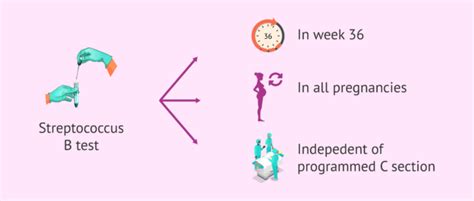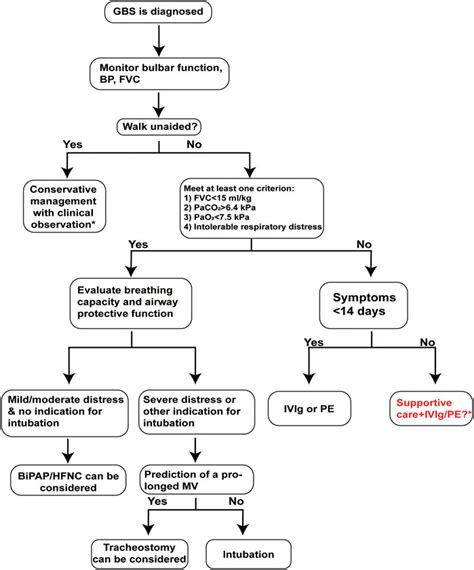Intro
Pregnancy is a unique and delicate period in a woman's life, filled with excitement, anticipation, and a myriad of physical and emotional changes. Among the numerous tests and screenings that pregnant women undergo, the Strep B test is one of the most crucial, particularly in the later stages of pregnancy. Group B streptococcus (GBS) is a common bacterium that can be found in the digestive and lower genital tracts of adults. While it is generally harmless in healthy individuals, GBS can pose a significant risk to newborns if they come into contact with it during birth.
The importance of the Strep B test lies in its ability to identify pregnant women who are carriers of the GBS bacterium. This identification is critical because, although rare, GBS can be transmitted to the baby during delivery, potentially leading to serious health issues, including sepsis, pneumonia, and meningitis. Understanding the implications of GBS and the role of the Strep B test is essential for expectant mothers, as it empowers them to make informed decisions about their prenatal care and the health of their baby.
As pregnancy progresses, especially around the 35th to 37th week, healthcare providers often recommend a range of tests to monitor the health of both the mother and the fetus. The Strep B test, typically performed between 35 and 37 weeks of gestation, involves collecting swab samples from the vagina and rectum. These samples are then sent to a laboratory for analysis to determine the presence of GBS. The test results are usually available within a few days and are crucial in guiding the management of labor and delivery to minimize the risk of GBS transmission to the newborn.
Understanding Group B Streptococcus

Group B streptococcus is a type of bacterium that is commonly found in the environment and can colonize in the human body without causing disease in most cases. However, its presence in pregnant women necessitates careful consideration due to the potential risks it poses to the newborn. GBS colonization is often asymptomatic, meaning that many women who carry the bacterium may not exhibit any signs or symptoms of infection. The bacterium can be transient, meaning its presence can come and go, or it can be persistent, remaining present over time.
Transmission and Risks
The primary concern with GBS during pregnancy is the risk of its transmission to the baby during delivery. Babies can come into contact with GBS as they pass through the birth canal if the mother is colonized with the bacterium. While the majority of babies exposed to GBS during birth will not develop any problems, there is a small chance that they could become infected. GBS infection in newborns can lead to severe illnesses, including sepsis (blood infection), pneumonia (infection of the lungs), and meningitis (infection of the fluid and lining around the brain and spinal cord).Strep B Test Procedure

The Strep B test is a straightforward procedure that involves taking swab samples from the vagina and rectum. These swabs are used to collect cells that may contain the GBS bacterium. The test is typically performed in a healthcare provider's office and does not require any special preparation. Women are usually asked to remove their underwear and lie on an examination table, where the healthcare provider will gently insert a swab into the vagina to collect a sample, followed by another swab to collect a sample from the rectum.
Interpreting Test Results
The results of the Strep B test will indicate whether GBS is present or not. If the test is positive, it means that GBS has been detected, and the woman is considered a carrier. A negative result indicates that GBS was not found in the samples. It's essential to understand that a positive result does not mean that the woman or her baby will definitely become ill. Rather, it signifies the need for precautions during delivery to reduce the risk of GBS transmission to the baby.Management and Prevention

For women who test positive for GBS, the primary management strategy during labor is the administration of intravenous antibiotics. This is usually started at least 4 hours before delivery, as this timeframe has been shown to significantly reduce the risk of transmitting GBS to the baby. The antibiotics work by reducing the amount of GBS bacteria in the vagina, thereby decreasing the likelihood of the baby coming into contact with a significant amount of the bacterium during birth.
Delivery and Post-Delivery Care
During delivery, healthcare providers closely monitor both the mother and the baby for any signs of complications or infection. After delivery, the baby is also monitored for signs of GBS infection, such as fever, breathing difficulties, or lethargy. In some cases, the baby may be given antibiotics as a precautionary measure, especially if they show any signs of illness or if the mother's GBS status was not known at the time of delivery.FAQs

What is Group B streptococcus?
+Group B streptococcus (GBS) is a type of bacterium that can be found in the digestive and lower genital tracts of adults. It is generally harmless in healthy individuals but can pose a risk to newborns if transmitted during birth.
Why is the Strep B test important during pregnancy?
+The Strep B test is crucial because it identifies pregnant women who are carriers of the GBS bacterium. This identification helps in taking preventive measures during delivery to reduce the risk of GBS transmission to the baby, which can lead to serious health issues.
How is the Strep B test performed?
+The Strep B test involves taking swab samples from the vagina and rectum, which are then sent to a laboratory for analysis to determine the presence of GBS. The test is typically performed between 35 and 37 weeks of gestation.
Conclusion and Next Steps

Understanding the implications of Group B streptococcus during pregnancy and the significance of the Strep B test is vital for expectant mothers. By being informed, women can work closely with their healthcare providers to ensure the best possible outcomes for their babies. If you have concerns about GBS or any aspect of your prenatal care, do not hesitate to discuss them with your healthcare provider. Sharing this article with others can also help spread awareness about the importance of the Strep B test and GBS prevention during pregnancy. We invite you to comment below with your thoughts or questions and to share your experiences with GBS testing and management during pregnancy.
